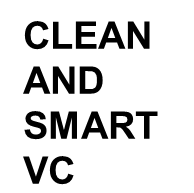Dear Founder #8: moving fast, intellectual honesty, and tapping into the “unknown unknowns”
- By ssyc1
- June 26, 2020
- No Comments
 As investors, we enjoy many of our discussions and interactions with founders – probably a good thing – and often gain much happiness (even excitement) when, after “following” founders and their teams over months or years of their entrepreneurial and growth journey, we hear about their progress (or an important insight they’ve gained that has resulted in some change) since we last interacted with them.
As investors, we enjoy many of our discussions and interactions with founders – probably a good thing – and often gain much happiness (even excitement) when, after “following” founders and their teams over months or years of their entrepreneurial and growth journey, we hear about their progress (or an important insight they’ve gained that has resulted in some change) since we last interacted with them.
When we look back on our own learning process as an investor, we realise we love founders who are determined, committed, and resilient (here’s our “great founding teams” piece which highlights the top traits of what we look for), which often mean they are not afraid of problems and are there for the long haul, but going at some speed (whether it is move fast and break things or move fast but don’t break things – for another post) requires entrepreneurs to take on some elements of being what we call a “learning machine”. In fact, when founders are great learning machines, it sometimes (or often) makes it OK, from our point of view, to have some missing ingredients (e.g. experience).
Some founders are constantly asking questions – it’s OK to “not know” when there’s enthusiasm, commitment or determination to learning it right there and then!
In a fast-changing world, we cannot stress how important this is, and 2 things really help here:
- Having, developing and practising a “growth mindset”. If we believe we can learn and we have to learn, and believe in our ability to learn, then we have resilience when things go wrong or don’t work. We don’t personalize it too much, we haven’t tied our identity or ego too much with achieving that something. We find it easier to handle the embarrassment, criticisms, loss of face, loss of control, and so on. It’s OK to admit errors! This contrasts with the “fixed mindset”, and as Stanford psychologist Carol Dweck herself puts it, “When we face challenges, receive criticism, or fare poorly compared with others, we can easily fall into insecurity or defensiveness, a response that inhibits growth”. Practising the growth mindset helps us develop the resilience that is necessary for the entrepreneurial journey (which of course is a marathon with lots of twists and turns).
- “Intellectual honesty” (or brutally objective self-assessment) helps a lot! Let’s just call a failure a setback and stay optimistic, move on with the lesson, move forward, and work better. To use a sports example, when Roger Federer goes off court into the press room after his Wimbledon matches, he rarely mentions the results but is almost always focused on analysing where he played well and what he is looking to improve in the next match. Even moments after losing an epic Wimbledon final by the narrowest of margins, he is assessing how he performed and responds to the interviewer at the trophy presentation who asks only about the result that he knows he played really well.
Growth- (and improvement-)oriented founders who like intellectual honesty (or as one fellow venture capitalist famously called it, “brutal honesty” [in contrast to “hypocritical politeness”]) also often come to the realization early on that finding great mentors and coaches can make a huge difference – the way we think about it is that mistakes are inevitable and you want to avoid the low level ones and certainly avoid making the same mistake(s) more than once. Questions typically help you with the “known unknowns”; great questions (especially those that are open-ended and broad) and an excellent “sounding board” (as well as an ability to listen) can help you with tapping into the “unknown unknowns”, i.e. what you didn’t know you don’t know (and turning the unknown unknowns into known unknowns! But experience has told us – and it will be useful to be clear about it too – that at least two emotional qualities help to get this “learning” to flow more readily:
- The mindset of and comfort in being a student, the habit of asking questions dispassionately; but also
- A particular type of courage: the courage to put aside the short-term emotional pain in order to seek and hear the truth so the bigger interest of the company is served. If curiosity is needed so questions are asked, the willingness to listen to the answer (and ponder on it) suggests that it is unflappable curiosity that makes it possible to “stomach” the answer that may “shock the system” a little, and then to stay curious and not be discouraged. Some people would call this resilience.
Dear founders, do take a little time to build this “buffer” that is called a sounding board (we say a little more on this in our earlier “building strong and weather-proof companies” piece that discusses this). If anything, it would be good to have these people remind you of the big picture. Putting the point more broadly, successfully bringing on-board and surrounding yourself with better, stronger and more experienced people working to realise your vision is invariably a key to success.
Picking the cross-a-pool-of-unknown-waters metaphor, we expect that you’d be looking out for pools of deep water that represent or suggest unknown “depths”. It would be good to have some sense of “where” those pools may be.
And both intellectual honesty and the ability to tap into the unknown unknown support your ability to move fast. It’s actually the only way to move fast in a good way: having a “system” or “method” to enable and support that speed including a step that allows you to go a little slower momentarily or backtrack in time in order to go further and better. It’s more about iterating more and better, and less about simply moving fast.
It is also worth mentioning that intellectual honesty when practised in your team is a key component to building trust in relationships, or to borrow once again, this time from a Big Pharm CEO, “the bitter pill of truth is the only way to build trust”.
It’s also worth saying something about the unknown knowns: in addition to the unknown unknowns (i.e. the blindspots), we also realise the need to be aware of the unknown knowns. We’re regularly reminding ourselves of the need to be aware of the presumptions we bring, to always be fact-based, to consider a particular case on the merits of the case itself, to value a fresh mind, and to use what we know from previous experience and our wisdoms judiciously and with care, with an eye and sensitivity to the differences that are often present in the particular situations. If we make mistakes, we try to rectify them and adjust course early; and ultimately, we simply accept that we would make mistakes and as long as we do our best and continue to do so, with respect, we simply move on and learn the lesson.
And because our work is often quite relationship-driven, it’s even more perilous. There are so many layers and dimensions, so getting to know our team members well really helps (we know what we may have to compensate for … real team work)! Similarly, we spend time with founding teams, we like teams that have some knowledge of their strengths and weaknesses, and we like to have real conversations even if sometimes they are difficult conversations. But it is only through difficult conversations that trust is being built and partnership being tested.
Make space for and make it a point to have those conversations.






Leave a Reply